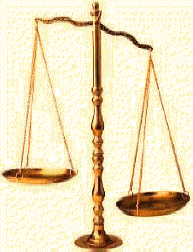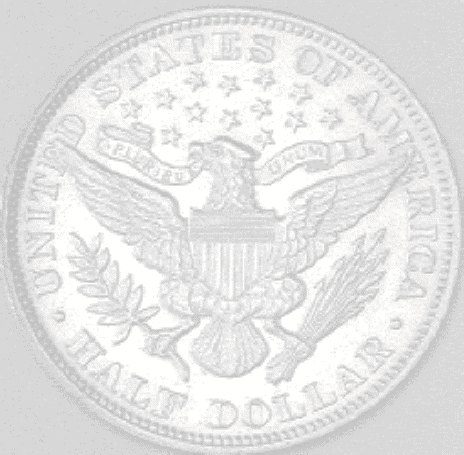
|
|
||
|
|
|
|
|
|
||

-58-
FOR BETTER OR WORSE:
In 1913, our national debt was
one billion "dollars." By 1983 it reached one trillion, one hundred
billion dollars (Griffin, 191), and by 1986 it has been estimated to be
4 trillion "dollars." On page 189, Mr. Griffin states the Federal
government "pays" to the bankers annual "interest" of I00 billion
"dollars" from income taxes. Thomas Jefferson wisely said, "I wish it
were possible to obtain an additional article to our Constitution ... I
mean an article taking from the Federal government the power of
borrowing" (Two Faces of Debt”, 19).
Mr. Jefferson wrote,
I place economy among the first and most important virtues, and public debt as the greatest of dangers to be feared. We must not let our rulers load us with perpetual debt. We must make our choice between economy and liberty, or profusion and servitude . . . The same prudence which in private life would forbid our paying money for unexplained projects, forbids it in the disposition of public money. We are endeavoring to reduce the government to the practice of rigid economy to avoid burdening the people . . ." (Saussy, 34).
Taxation was the tool the
Federal government employed to destroy state (wildcat) banks. It has
been often stated, "The power to tax is the power to destroy." What then
will happen to religious freedom in this land if the Federal government
begins to tax churches?
President Wilson sought the counsel of attorney
Louis D. Brandeis. At his advice, the President declared on June 17th
that he would insist upon government control of the Federal Reserve
Board and would insist upon making Federal Reserve notes the obligation
of the United States (Johnson, 24).
On June 23, 1913, President Wilson addressed a joint
session of Congress and presented his proposals. Many saw it an "assault
on private rights" (Johnson, 26); and as a bill sponsored by the
Democratic Party and its "anti-business" elements (Johnson, 26).
It is a true saying that tyranny emerges out of chaos. If God's Law of a
just weight and measure had been "fixed" and unalterable, and so
"regulated", such a proposal would never have been proposed to the
American people, and chaos would not have appeared in the economy of our
land.
On June 25th, President Wilson met with the Currency
Commission of the American Banking Association where it was determined
to gradually retire National Bank notes (Johnson, 27). But all was not
well for the Administration: a faction within the Democratic Party
revolted, and demanded the President destroy the "Money Trust." Chiefly
from the Southern and Western states, they believed the Trust was a
private institution operating by government protection.
The Democratic Revolt
The revolt was led by Robert Henry, a Texas Congressman. In a prepared statement he declared,
The bill as now written is wholly in the interest of the creditor classes, the banking fraternity and the commercial world, without proper provision for the debtor classes and those who toil, produce, and sustain the country (Johnson, 28).
In July they gained
control of the House Banking and Currency Committee (Johnson, 28), but
William Jennings Bryan, now Secretary of State Bryan, moved to oppose
them! He called upon the Democratic Party to support the President, and
not to embarrass him. According to Mr. Hicks, "It was Bryan more than .
. . anyone else that had made Wilson President, and Bryan, if left
outside the Wilson entourage, had the power to cause the new
Administration endless trouble" (Hicks, 442).
Amid opposition that called the bill "a Communistic
idea" (Johnson, 29), Mr. Carter Glass began in early September to
push the bill through the House. On September 18th, the bill cleared the
House by a vote of 287 to 85 (Johnson, 31). All but 3 Democrats
supported the bill, while 70 percent of the Republicans opposed it
(Johnson, 31).
The annual meeting of the American Bankers Association
met in Boston in early October and passed a series of resolutions
denouncing the Federal Reserve bill as "socialistic, confiscatory,
unjust, un-American, and generally wretched” (Johnson, 32).
